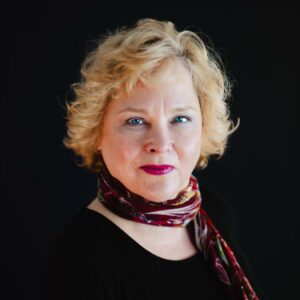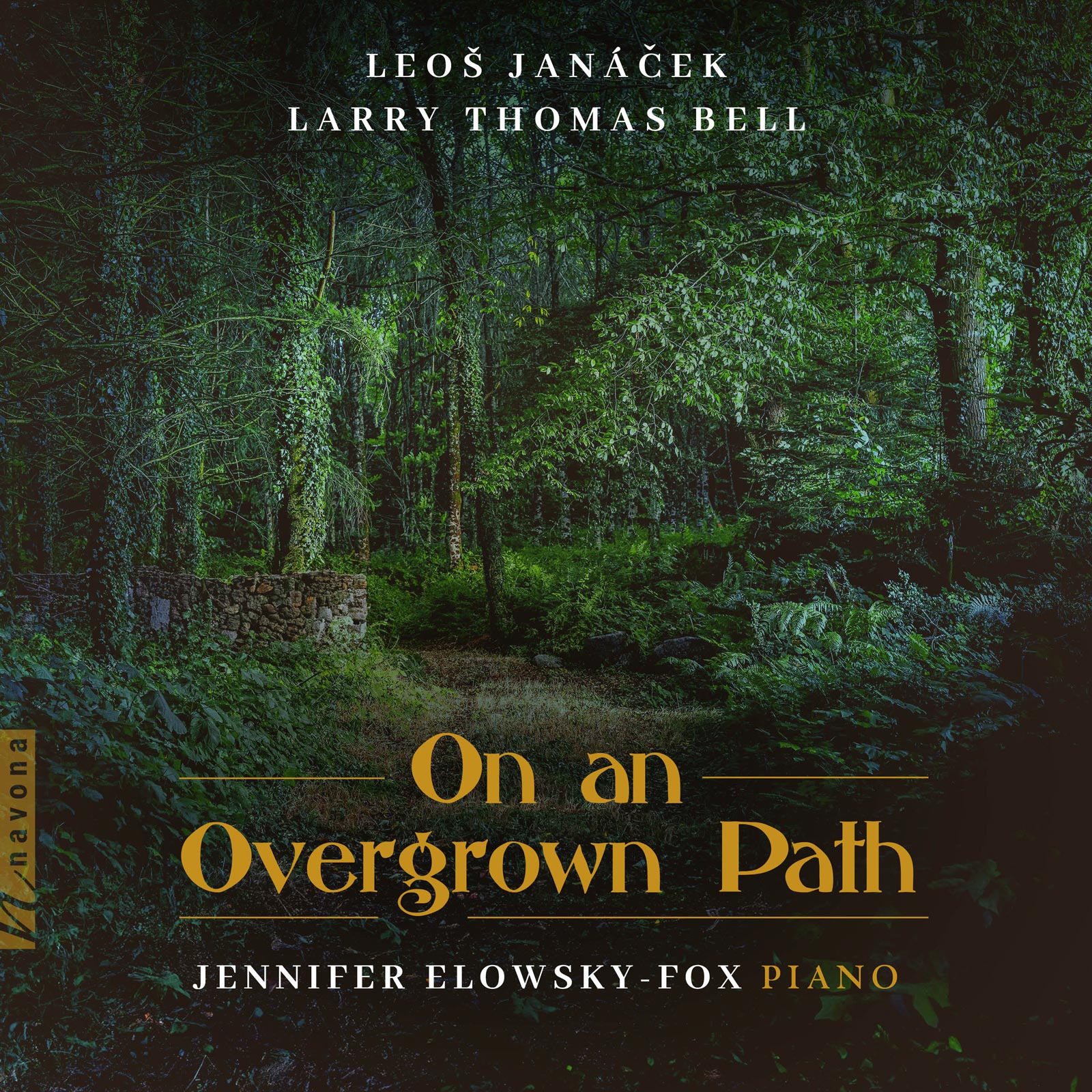On an Overgrown Path
Leoš Janáček composer
Larry Thomas Bell composer
Jennifer Elowsky-Fox piano
ON AN OVERGROWN PATH from pianist Jennifer Elowsky-Fox features music by composers Leoš Janáček and Larry Thomas Bell. Janáček gives the album its title piece, a programmatic work that evokes the composer’s memories from early 20th century Moravia. The piano cycle, performed with masterful sensitivity by Elowsky-Fox, blends the eastern and western cultural influences of the region. Based on hymn tunes included in Bell’s A Hymnbook for Congregational Singing, op. 169, Bell’s Piano Sonata No. 5, A Landscape of Small Ruins, op. 166, was composed in 2020 specifically for Elowsky-Fox. Her performances have been described in print as “buoyant”, “fun,” and “gorgeous in all respects,” all sentiments that resonate in this Navona Records release.
Track Listing & Credits
| # | Title | Composer | Performer | |
|---|---|---|---|---|
| 01 | On an Overgrown Path, Series I: I. Our Evenings | Leoš Janáček | Jennifer Elowsky-Fox, piano | 3:51 |
| 02 | On an Overgrown Path, Series I: II. A Blown-Away Leaf | Leoš Janáček | Jennifer Elowsky-Fox, piano | 3:11 |
| 03 | On an Overgrown Path, Series I: III. Come with us! | Leoš Janáček | Jennifer Elowsky-Fox, piano | 1:21 |
| 04 | On an Overgrown Path, Series I: IV. The Frydek Madonna | Leoš Janáček | Jennifer Elowsky-Fox, piano | 2:58 |
| 05 | On an Overgrown Path, Series I: On an Overgrown Path: V. They chattered like swallows | Leoš Janáček | Jennifer Elowsky-Fox, piano | 2:26 |
| 06 | On an Overgrown Path, Series I: VI. Words fail! | Leoš Janáček | Jennifer Elowsky-Fox, piano | 2:08 |
| 07 | On an Overgrown Path, Series I: VII. Good night! | Leoš Janáček | Jennifer Elowsky-Fox, piano | 3:06 |
| 08 | On an Overgrown Path, Series I: VIII. Unutterable anguish | Leoš Janáček | Jennifer Elowsky-Fox, piano | 3:32 |
| 09 | On an Overgrown Path, Series I: IX. In tears | Leoš Janáček | Jennifer Elowsky-Fox, piano | 3:04 |
| 10 | On an Overgrown Path, Series I: X. The barn owl has not flown away! | Leoš Janáček | Jennifer Elowsky-Fox, piano | 3:38 |
| 11 | On an Overgrown Path, Series II: I. Andante | Leoš Janáček | Jennifer Elowsky-Fox, piano | 3:50 |
| 12 | On an Overgrown Path, Series II: II. Allegretto | Leoš Janáček | Jennifer Elowsky-Fox, piano | 3:47 |
| 13 | On an Overgrown Path, Series II: III. Più mosso | Leoš Janáček | Jennifer Elowsky-Fox, piano | 3:49 |
| 14 | On an Overgrown Path, Series II: IV. Vivo | Leoš Janáček | Jennifer Elowsky-Fox, piano | 2:33 |
| 15 | On an Overgrown Path, Series II: V. Allegro | Leoš Janáček | Jennifer Elowsky-Fox, piano | 5:35 |
| 16 | Piano Sonata No. 5, A Landscape of Small Ruins, op. 166 | Larry Thomas Bell | Jennifer Elowsky-Fox, piano | 11:36 |
Recorded May 18, 2021 at Berklee Recording Studios in Boston MA
Recording Session Producer & Engineer Jonathan Wyner
Editing, Mixing & Mastering Jonathan Wyner
This album is dedicated to my niece, Carolena Kelly Elowsky (1994-2015). “See you on the flippety- flip.”
Executive Producer Bob Lord
VP of A&R Brandon MacNeil
A&R Jeff LeRoy
VP of Production Jan Košulič
Audio Director Lucas Paquette
VP, Design & Marketing Brett Picknell
Art Director Ryan Harrison
Design Edward A. Fleming
Publicity Chelsea Kornago
Artist Information

Jennifer Elowsky-Fox
Berklee professor and pianist Jennifer Elowsky-Fox has performed for many years in Boston, where her exciting performances have brought audiences to their feet. Her playing has been described in print as “buoyant,” “fun,” and “gorgeous in all respects.” A devoted friend to her contemporaries, she has championed composers and engaged fellow musicians with whom she has performed.
Larry Thomas Bell
Recognized by The Chicago Tribune as “a major talent,” composer Larry Bell has been awarded the Rome Prize, fellowships from the Guggenheim and Rockefeller Foundations, the Charles Ives Award from the American Academy of Arts and Letters, among other awards. Bell’s orchestral music has been performed by the Atlanta Symphony, Seattle Symphony, RAI Orchestra of Rome, Juilliard Philharmonia, Boston Modern Orchestra Project, Ruse Philharmonia (Bulgaria), Civic Symphony Orchestra of Boston, Hopkins Symphony Orchestra, University of Miami Symphony, Symphony ProMusica, and the Boston Landmarks Orchestra.

